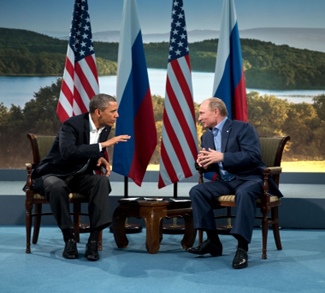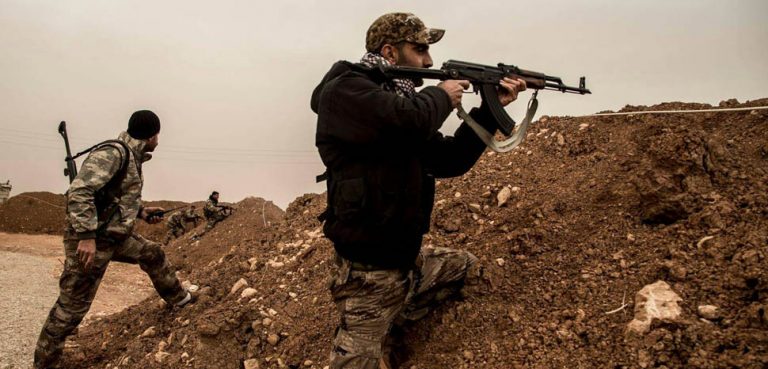There are two misconceptions about President Obama’s summit snub currently making their rounds in the global media. The first is that the snub was a direct result of Moscow’s decision to grant NSA whistleblower Edward Snowden temporary asylum. This glosses over the steady decline in US-Russian relations that has occurred over the past few years, a decline in which Snowden is merely the most recent contributing factor. As the New York Times points out, Russian relations were scheduled for an internal policy re-assessment following the scheduled September meeting even before the Snowden affair came to a head.
The second misconception concerns the degree to which the summit cancellation can be considered a desirable outcome for President Putin. Though some articles imply that Obama’s snub plays right into Putin’s own anti-US domestic politicking, in reality it is more than likely the result of a simple miscalculation on the part of the Russian president – one that might come back to haunt him in the future.
President Putin seems to have underestimated the corrosion of US-Russian relations over the past few years, and in arranging for Edward Snowden’s temporary asylum, he was either seeking to avenge or eventually resolve major extradition cases in which Russia is being stonewalled by the US government. Two such cases are Tamaz Nalbandov, who is accused of kidnapping and extortion by the Russian government, and Ilyas Akhmadov, a Chechen separatist leader accused of terrorism. Both individuals are currently living in the United States.
While it is true that President Putin has staked much of his domestic political credibility on standing up the United States, symbolically if not always substantively, he has generally operated one step behind open conflict. One example of this is his initial reluctance to deliver advanced S-300 missiles to Syria, a stance that contravened contracts signed back in 2010 (this reluctance subsequently evaporated in 2013 after the EU lifted its arms embargo on Syrian rebel forces). The Russian government also cooperated with the US government on the ill-fated Geneva conference, an effort that collapsed due to a boycott by Syrian opposition forces.
Miscalculation or not, an open break has been a long time coming. On the Russian side, the prospects of a true “reset” were scuttled by a combination of domestic and international factors. The spontaneous, large-scale protests that broke out in several Russian cities following the 2011 elections came as a shock to the Putin government, and it reacted predictably in accusing the United States and its human rights proxies of meddling in Russian politics. Interestingly, this is a theme that seems to be gaining traction in the general public, as anti-Americanism has seen a marked rise in Russia over the past few years, fueled by perceptions of American hypocrisy on human rights issues as well as the Obama administration’s failure to treat Russia like a relevant global power.
On the international level, the issues acting as a drag on US-Russian relations are well-known: the conflict in Syria, disagreements on how to proceed with arms control and de-nuclearization, political and human rights disagreements, and most recently the Snowden affair.
On the American side, Obama’s summit snub can be taken as an admission that conflict is trumping cooperation in US-Russian relations. Recall that President Obama initially invested a good deal of political capital in “resetting” the two countries’ relations in an attempt to reverse the mutual mistrust that came to characterize the latter part of the Bush administration. Obama’s early investment has now officially been written off, and in an attempt to save face, the US president has come out swinging. Earlier this week, he appeared on a popular late night television and complained that Moscow has slipped back into a “Cold War mentality.”
US-Russian relations are likely to get worse before they get better. The Obama administration has decided that since amiable cooperation was going nowhere, it’s time to test the waters of open antagonism once more. Unsurprisingly, several prominent US politicians have come out in support of a shift towards containment. US Senators Lindsey Graham and John McCain have applauded the cancellation of the summit and, with dizzying speed, have already advocated that the US government take further steps to demonstrate American resolve, including an acceleration of missile defense construction in Europe and offering NATO membership to Georgia. While it’s unlikely that President Obama would sign off on either of these provocative steps at present, he will not be making any dovish overtures to Moscow; that is, unless Moscow does so first.
Given the corner that President Putin has maneuvered himself into with regards to US relations, it’s doubtful that any such overture will be forthcoming. The Russian president dispatched a very public “get well soon” message to his erstwhile chum-turned-rival George W. Bush, a move that many have interpreted as conciliatory, but it will take a lot more than that to convince President Obama to come down from the war horse.
Thus, though the Snowden affair might have been the minor miscalculation that broke the back of US-Russian relations, just because it’s unintentional doesn’t mean it can’t have a massive and irreversible impact on relations between the two countries.




